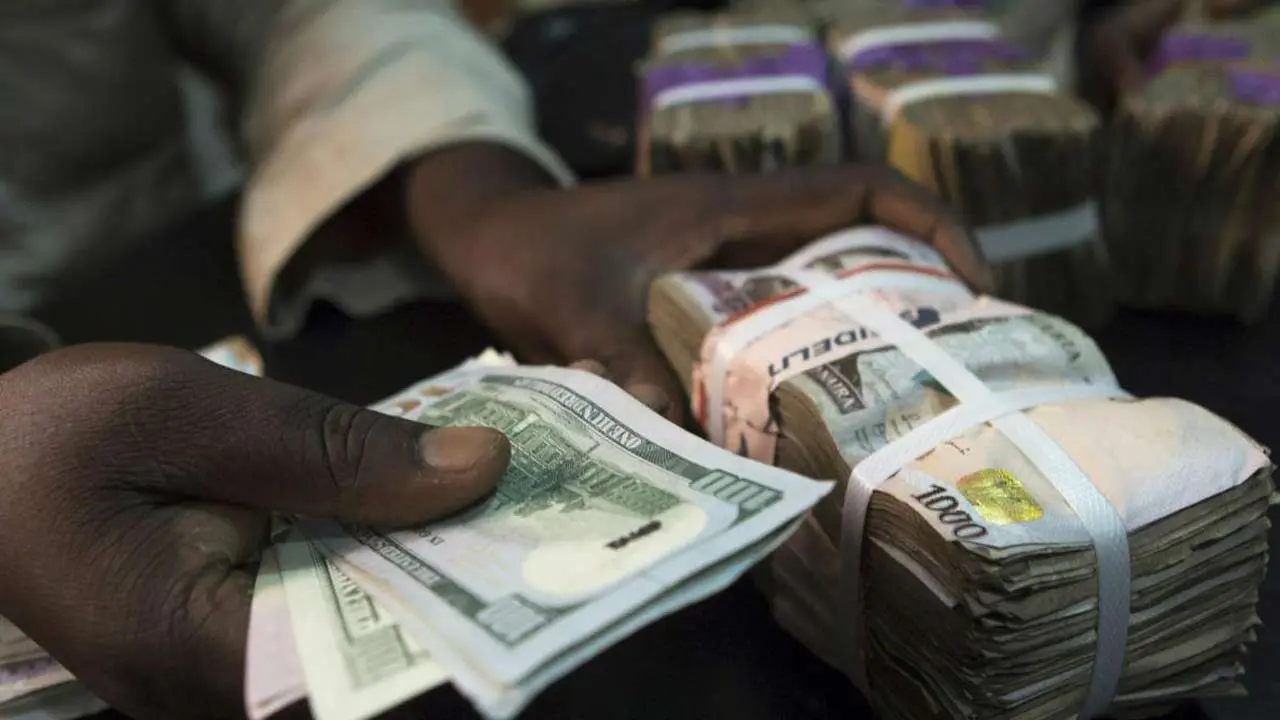The naira continued its downward spiral against the U.S. dollar in both official and parallel foreign exchange markets, sparking renewed concerns about Nigeria’s economic stability.
According to data from the Financial Markets Dealers Quotation (FMDQ), the official rate dropped to N1,689.88 per dollar on Tuesday, compared to N1,681.42 on Monday, marking an N8.42 depreciation.
This trend was mirrored in the parallel market, where the naira weakened by N5, closing at N1,740 per dollar from Monday’s N1,735.
The depreciation came amid a significant decline in foreign exchange (FX) transaction turnover.
On Tuesday, FX turnover shrank to $106.44 million, a stark drop from the $471.5 million recorded on Monday. This slump underscores the chronic dollar shortage and growing pressure on Nigeria’s currency market.
Economic analysts attribute the naira’s continued slide to structural issues and limited foreign currency inflows.
Dr. Ibrahim Kazeem, a financial economist, remarked, “The naira’s depreciation is reflective of broader macroeconomic challenges, including limited export revenues and persistent demand for the dollar.
READ ALSO: Naira slides further amid mounting pressure, experts warn of looming economic impact
“Even with recent efforts by the Central Bank to manage liquidity, the disparity between supply and demand continues to strain the market.”
Adding to concerns, BMI, a subsidiary of Fitch Solutions, recently projected that the naira could further plummet to N1,993 per dollar if these trends persist.
“Such forecasts highlight the urgent need for policy measures to stabilize the currency,” said Kazeem. “Without intervention, we could see a more accelerated decline.”
Interestingly, the naira’s depreciation comes despite a boost in Nigeria’s foreign exchange reserves, which climbed to $40.167 billion as of November 11, 2024, according to the Central Bank of Nigeria (CBN).
While this increase should ideally buffer currency pressures, analysts argue that it may not be sufficient to offset the underlying challenges.
READ ALSO: Naira hits record low of N1681/$1 amid persistent FX market pressures
“An increase in reserves is positive but not decisive unless it is used effectively to support the foreign exchange market,” explained Sarah Okon, an investment strategist. “The main issue lies in translating those reserves into an effective intervention strategy that ensures steady dollar availability.”
Economists and financial experts are calling for comprehensive measures to address the situation.
Dr. Kazeem emphasized, “Immediate steps could include diversifying Nigeria’s sources of foreign income and revisiting monetary policies that enhance dollar liquidity.
Meanwhile, fostering confidence in the market through transparent communication by the CBN is essential to mitigate speculative activities.”
Despite these proposals, structural reforms remain a pivotal long-term solution. Without significant shifts in Nigeria’s economic policy and efforts to strengthen its non-oil sectors, the naira’s stability may remain out of reach.
As Nigerians watch the naira’s value erode and inflation continue to bite, market stakeholders and policymakers face mounting pressure to devise strategies that can bring about sustainable currency stability.

 Latest4 days ago
Latest4 days ago
 Trends5 days ago
Trends5 days ago
 Business6 days ago
Business6 days ago
 Football6 days ago
Football6 days ago
 Health6 days ago
Health6 days ago
 Featured7 days ago
Featured7 days ago
 Football5 days ago
Football5 days ago
 Business6 days ago
Business6 days ago

